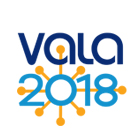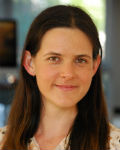
Creating a digital legacy: QANZAC100: Memories for a New Generation
VALA2018 CONCURRENT SESSION 6
Tuesday 13 February 2018, 15:20 – 15:50
Margaret Warren and Robyn Hamilton
State Library of Queensland
Please tag your comments, tweets, and blog posts about this session: #vala2018 #s15
Abstract
Through collection acquisition, digitisation, engagement and data sharing activities, State Library of Queensland’s QANZAC100: Memories for a New Generation project has created a unique digital legacy of Queensland participation in the First World War. With an aim to increase understanding of Queenslanders’ experiences during and after the First World War, the project has also built the capacity of community stakeholders to explore and share local and family stories, enabled researchers to access content, explored how the war is remembered, and encouraged a re-examination of the past. In order to sustain a digital legacy, outcomes of the project have been considered as data, with intent to achieve open, structured, interoperable, and re-usable data.

This work is licensed under a Creative Commons Attribution-NonCommercial License.











